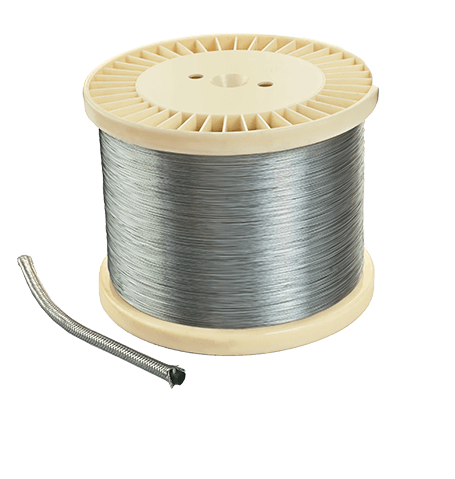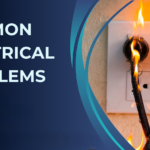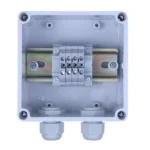The standards and certifications for stainless steel wires and cables ensure that these products meet specific quality, safety, and performance criteria for various applications, from industrial to electrical use. These standards are typically set by international organizations, national bodies, and industry-specific authorities. Below are some of the key standards and certifications applicable to stainless steel wires and cables:
1. International Standards
- ISO 9001 (Quality Management Systems):
- This certification ensures that manufacturers follow consistent quality management practices, improving their products’ reliability and performance.
- Although not specific to stainless steel wires and cables, it is widely applicable across all manufacturing processes, including wire production.
- ISO 14001 (Environmental Management):
- This standard focuses on the environmental impact of manufacturing processes. Stainless steel wire manufacturers complying with ISO 14001 ensure that they minimize their environmental footprint, such as waste reduction and resource management.
- ISO 45001 (Occupational Health and Safety):
- It certifies that manufacturers adhere to safety standards in their production environment, ensuring a safe workplace for their employees, which is particularly important when handling heavy and potentially hazardous materials like stainless steel.
2. Stainless Steel-Specific Standards
- ASTM A313 (Standard Specification for Stainless Steel Spring Wire):
- This standard covers the requirements for stainless steel spring wire used in various mechanical applications.
- It specifies material properties like tensile strength, yield strength, elongation, and other essential characteristics.
- ASTM A580 (Standard Specification for Stainless Steel Wires):
- This covers general requirements for stainless steel wire, including dimensions, mechanical properties, and testing methods. It applies to stainless steel wire used for many purposes, including cables and general applications.
- ASTM A276 (Standard Specification for Stainless Steel Bars and Shapes):
- Though primarily for bars and shapes, this standard also applies to certain types of stainless steel wire products used in structural applications.
- EN 10088-3 (Stainless Steel Products – Part 3: Technical Delivery Conditions for Stainless Steel Bars):
- This European standard defines the technical conditions and specifications for stainless steel products, including wire. It ensures quality and reliability in stainless steel products used in engineering, automotive, and other industries.
3. Electrical Industry Standards (For Stainless Steel Cables)
- UL 83 (Thermoplastic-Insulated Wires and Cables):
- Although this standard applies to insulated cables, it ensures that the stainless steel wire inside the cable meets specific safety, performance, and insulation requirements for use in electrical installations.
- UL 1277 (Power-Limited Circuit Cables):
- This standard applies to wires and cables used for low-voltage power-limited circuits. It ensures that the cables, including those containing stainless steel wire, meet stringent safety, durability, and electrical performance requirements.
- IEC 60228 (Conductors of Insulated Cables):
- This international standard specifies the construction, mechanical properties, and electrical conductivity of conductors used in insulated cables. For cables using stainless steel wire, compliance with IEC 60228 ensures that the wire’s conductive properties meet the necessary specifications for electrical use.
4. Industry Certifications
- RoHS (Restriction of Hazardous Substances):
- This certification ensures that the stainless steel wire used in cables and other products does not contain hazardous materials such as lead, mercury, or cadmium, in compliance with European Union regulations.
- RoHS compliance is crucial for industries concerned with environmental safety, including the electronics and electrical sectors.
- CE Marking (European Conformity):
- The CE mark indicates that a product complies with the essential health, safety, and environmental protection standards required in the European Economic Area (EEA). For stainless steel wire and cables, it ensures they meet European safety and performance standards.
- CSA Certification (Canadian Standards Association):
- In North America, stainless steel wires and cables intended for use in electrical applications may require CSA certification, which ensures that the product meets Canadian electrical and safety standards.
5. Special Certifications for Mechanical and Structural Uses
- AISI (American Iron and Steel Institute) Grades:
- Stainless steel wire used in mechanical and structural applications is often classified according to AISI grades, such as 304, 316, and 302. These grades denote specific compositions and performance characteristics suited for varying environmental and mechanical stress requirements.
- DIN Standards (Deutsches Institut für Normung – German Institute for Standardization):
- DIN standards are widely followed for stainless steel products, including wires and cables. For example, DIN 17440 specifies stainless steel wire used for mechanical and structural purposes.
6. Certification for Specialized Applications
- API Standards (American Petroleum Institute):
- In industries like oil and gas, stainless steel wire products often have to comply with API standards, ensuring that they can withstand extreme environmental conditions, including high temperatures and corrosive environments.
- ISO 17632 (Welding Consumables – Stainless Steel Wires and Rods):
- This standard covers the use of stainless steel wire in welding consumables, ensuring that wire products used in welding meet specific material strength, elongation, and resistance to various stresses.
7. Additional Considerations
- NSF Certification (National Sanitation Foundation):
- For applications in food processing or medical industries, stainless steel wire products may require NSF certification, ensuring they meet hygiene and safety standards for food and health-related environments.
- TUV Certification:
- TUV is an international certification body that ensures the compliance of products with safety, performance, and sustainability standards. Stainless steel wires and cables used in critical applications may require TUV certification.
Conclusion
Stainless steel wires and cables must meet a range of standards and certifications depending on their application, ranging from mechanical and structural to electrical and environmental safety. Compliance with these standards ensures the product’s quality, safety, and reliability, especially in critical industries like automotive, construction, electronics, and manufacturing.
Hashtags
#WiringStandards #CableCertification #WireAndCableStandards #WiringIndustryRegulations #InternationalCableStandards #WireCertificationProcess #IECStandards #ISO9001Certification #IEC60228 #BSENStandardForWires #InternationalWiringStandards #GlobalCableCertifications #StainlessSteelWireStandards #StainlessSteelCableCertifications #WireMaterialCertifications #StainlessSteelManufacturingRegulations #StainlessSteelWiringGuidelines #ULCertificationForWires #ElectricalSafetyStandards #SafetyCertificationForCables #NFPA70StandardForWiring #ElectricalWireStandards #ConductorSafetyStandards #ISO9001ForWires #ManufacturingQualityStandards #WireManufacturingCertifications #QualityAssuranceInCables #ManufacturingRegulationsForWires














